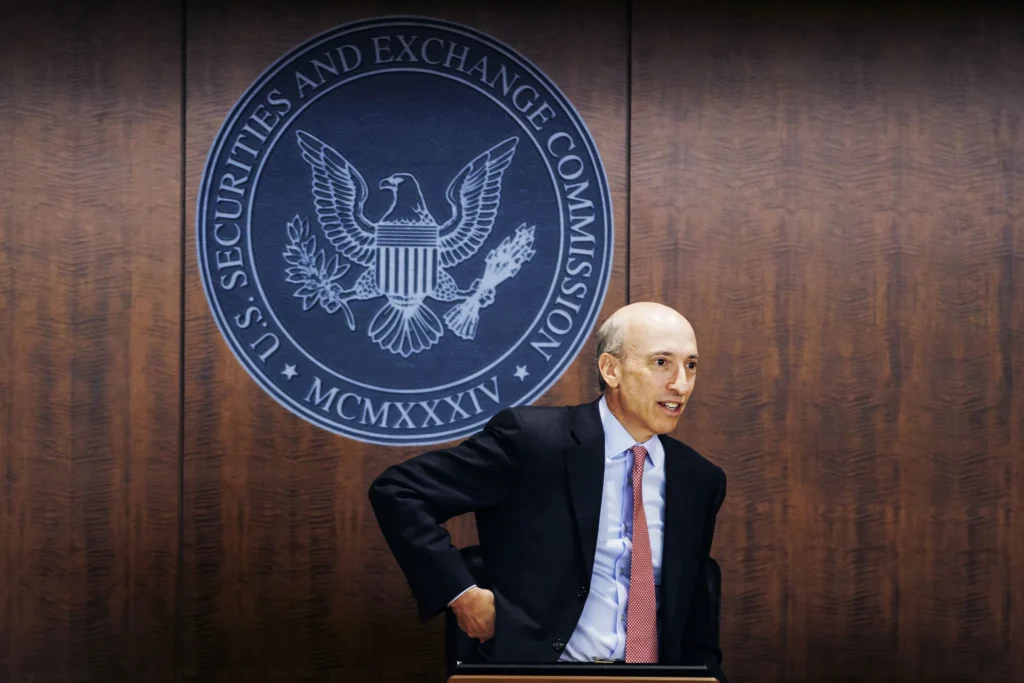SEC Chair Gary Gensler has criticized the FIT21 Act, citing regulatory deficiencies and investor protection concerns.

Gary Gensler, chairman of the United States Securities and Exchange Commission (SEC), has recently issued a statement expressing significant opposition to the FIT21 Act, also referred to as the Financial Innovation and Technology for the 21st Century Act.
Prominent sources obtained a statement from Gensler on Wednesday, wherein he expressed apprehensions that the legislation would engender substantial regulatory voids and erode established norms concerning the supervision of investment contracts.
Gensler’s Strong Opposition & Risks Highlighted
Gary Gensler argued that this could significantly endanger both investors and capital markets.
“The FIT21 Act would create new regulatory gaps and undermine decades of precedent regarding the oversight of investment contracts, putting investors and capital markets at immeasurable risk,” Gensler said in his statement.
A post on X has disclosed crucial information regarding his bolstered arguments.
Concerning classifying crypto assets as investment contracts, he emphasizes his most vehement objection to the FIT21 Act.
The individual believes that H.R. 4763, which would eliminate the SEC’s supervision of these assets, would impede endeavours to safeguard investors.
According to Gensler, the legislation has the potential to permit cryptocurrency companies to autonomously certify their products and investments as “decentralized” and categorize them as “digital commodities.”
Due to resource limitations, this self-certification procedure would severely restrict the SEC’s ability to contest these classifications.
“The self-certification process risks investor protection not just in the crypto space; it could undermine the broader $100 trillion capital markets by providing a path for those trying to escape robust disclosures, prohibitions preventing the loss and theft of customer funds, enforcement by the SEC, and private rights of action for investors in the federal courts,” Gensler emphasized.
Market Regulation and Possible Fraud Concerns
In addition, Gensler expressed apprehensions that the FIT21 Act might enable malicious actors to take advantage of the regulatory loopholes that the legislation creates.
To circumvent securities laws, he cautioned, perpetrators of fraudulent schemes such as pump-and-dump and penny stock schemes might certify their systems as decentralized or label their activities as crypto investment contracts.
“What if perpetrators of pump and dump schemes and penny stock pushers contend that they’re outside of the securities laws by labelling themselves as crypto investment contracts or self-certifying that they are decentralized systems?” Gensler inquired.
Furthermore, he expressed his disapproval of the legislation’s exclusion of crypto trading platforms from the definition of an exchange and its elimination of tried and true frameworks like the Howey test, which would presumably subject investors to an even greater degree of risk, in his opinion.
